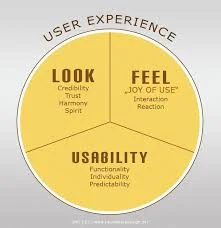ZERO CONTENT should be the goal of all practical writing.
That concept is most succinctly expressed in the following mathematical statement: zC = RQ - WA, where zC=ZERO CONTENT; RQ = Reader’s Questions; WA = Writer’s Answers.
If you teach (practical) writing at any level (in this swatch I include professional writing of any kind and college writing, as well as its antecedents from first grade onward), I think you should SPOTLIGHT (floodlight) the critically important writing skills for generating useful content for an interested reader.
Useful content should always be the practical writer’s JOB #1. (Only if there’s useful content--for an interested reader--do all the “presentation” skills of writing make sense.)
Let me explain this essential equation for determining when a document has reached ZERO CONTENT….
READING TIME: 4.8 minutes
(Please share this post with anyone you know who teaches writing at any level.)
Talking to the produce man at my locally owned grocery store, I mention that I teach writing at the local university. He tells me he never liked writing. I hear that a lot. He also says he better watch how he speaks to me to make sure he doesn’t make any grammatical mistakes. I hear different versions of that a lot, too.
I tell him not to worry. I tell him you can’t make mistakes when you’re talking, by which I mean there are MANY versions of English, MANY versions among those who learned English as their first language and MANY more among those who didn’t learn English first. I’m thinking here of the difference between descriptive and prescriptive grammar.
But what I’m really emphasizing is that language use, spoken or written, is, first and foremost, a matter of generating useful (you might say “interesting”) CONTENT.
So here’s my short definition of good writing….
According to Interaction-Design.org,
“User experience (UX) design is the process of creating products that provide meaningful and relevant experiences to users. This involves the design of the entire process of acquiring and integrating the product, including aspects of branding, design, usability, and function.”
In teaching business/technical writing—I call it WORKPLACE WRITING—UX should be our main focus.
Currently, college classes in workplace writing tend to emphasize genres, teaching students formats for memos, reports, resumes, blog posts, letters, technical directions, process descriptions, etc., etc. Workplace- writing instructors seem to believe that introducing students to these generic formats and having them practice a few of them throughout the semester will give students useful writing skills.
I disagree.
How much more useful would it be to students to give them writing skills they can apply to any kind of practical writing wherever they end up in the world of work?
That’s the approach I take, the approach used in my textbook, Mastering Workplace Writing. It emphasizes UX, the whole process of UX!
A lot of people think of “writing” as presenting messages, but it’s more than that.
Yes, “writing” is mechanics (punctuation, grammar, spelling, etc.); it is words (chosen for accuracy, tone, and effect); it is sentences (the way readers breathe as they read); it is paragraphs (little houses built of sentences); it is document design (visual structure for the reader); it is organization (logical structure for the reader).
BUT…it is also CONTENT (answers to the reader’s questions about the ISSUE in question).
An important part of evaluative content is a set of critical-thinking tools known to performance auditors as THE 4 ELEMENTS OF A FINDING. These include criteria, condition, cause, and effect. These elements allow a writer to evaluate anything and, if necessary, make a compelling recommendation for change/improvement.
Here’s a description of this set of critical-thinking tools, which is best thought of as a three-step evaluation process. Everyone should know about the 4 Elements; all students in any writing class should learn to use them. (They are actually far more helpful for evaluative thinking/writing than the more common 5Ws from journalism: who, what, when, where, and why.”)
The 4 Elements of a Finding Are an Invaluable Critical-Thinking Path (for evaluation)
I love English departments. I love the teachers who labor in the freshman-comp salt mines. But I don’t always like how they teach freshman composition. Usually I don’t like it. (Of course I can’t know every department’s approach to this class, but much of what I see bothers me greatly.)
I don’t see that freshman comp classes are giving students the strong writing skills they’ll need to do well at work. In fact, many students turn against writing after they take freshman comp. So let me make my case….
I think it’s important to see that "writing" sits on a wide spectrum from writing-to-inform at one end to writing-to-entertain at the other. An owner's manual for a new car is at one end. Poetry is at the other end. Reviews are usually someplace in the middle. If you're reviewing car batteries, you're probably not going to do much to entertain your reader, who’s just in it for the info. But reviews of more aesthetic experiences, such as restaurants, movies, music, and books, tend to have more entertaining language.
So what makes sentences interesting?
Your writing students (or your children at any level who are in writing classes in school/college) should be learning the following 10 fundamental writing concepts/skills. If they have these skills, they will be well on their way to mastering “practical writing,” the kind of writing they’ll need to do in school/college and for the rest of their lives at work.
If they don’t have these skills, you should be asking their writing teachers why not!








